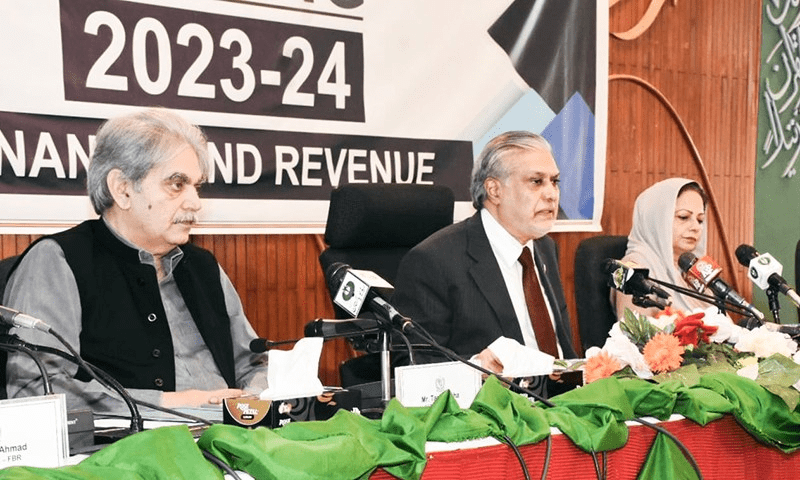Finance Minister Ishaq Dar announced on Saturday that the government is considering engaging in discussions with bilateral partners regarding debt restructuring after the budget process. He clarified that the relief measures would not involve “haircuts or write-offs” and assured that payments to multilateral creditors would be made on time. Dar emphasized the government’s commitment to meeting its obligations and stated that rescheduling multilateral debt was not part of their plan. While requesting a debt restructuring or write-off was not on the table, negotiations could be pursued for extending the repayment period, he added.
During a post-budget press conference in Islamabad, Dar emphasized the government’s focus on reversing economic losses and achieving previous economic indicators. He highlighted the importance of transparent implementation of the Public Sector Development Program (PSDP) in attaining a projected GDP growth rate of 3.5%. Dar also mentioned the need to address domestic debt issues, particularly regarding rescheduling, and expressed concerns about its impact on the government’s functioning. He emphasized the government’s aim to bring about an agricultural revolution and reduce the burden of debt servicing.
Dar reassured that Pakistan would not default on its financial obligations and stated that the government had alternative options available. He emphasized the efforts made towards the ninth and tenth reviews of the International Monetary Fund (IMF) program and expressed hope for the disbursement of payments. The minister also addressed the allocation of funds for general elections, emphasizing the government’s commitment to holding elections on time and clarifying that coalition partners’ statements were their own views. Dar acknowledged the need for further reforms in the power sector, highlighted efforts made in the renewable energy sector, and addressed reports regarding the withdrawal of edible oil and the targeted fuel subsidy for motorists.
Overall, the government is exploring debt restructuring discussions with bilateral partners, ruling out haircuts or write-offs. The focus remains on meeting financial obligations, implementing the budget, and pursuing economic growth while addressing domestic debt issues and reforming the power sector.
















